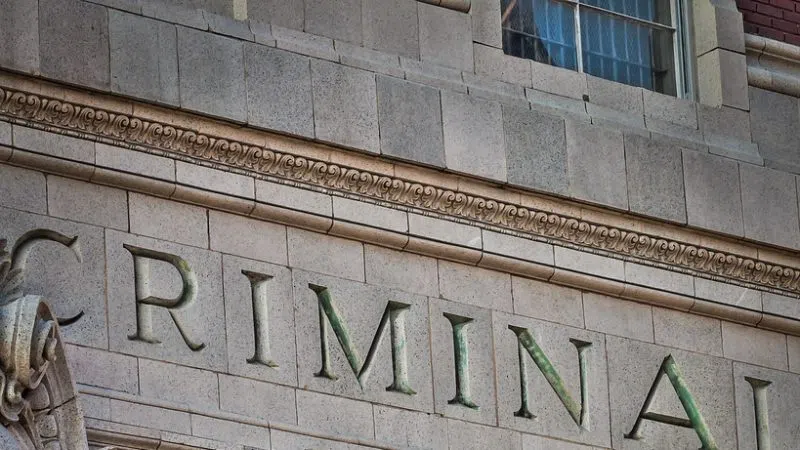(WASHINGTON) — President Joe Biden on Wednesday touched down in the Middle East for the first time as president, for a visit to Israel, the occupied West Bank and Saudi Arabia centered on encouraging the growing ties between Israel and Arab countries, while resetting his administration’s relationship with Saudi Arabia.
“The connection between the Israeli people and the American people is bone deep,” Biden said after landing in Tel Aviv, where he greeted Israeli leaders past and present and received a briefing on missile defense systems. “It’s bone deep. Generation after generation, that connection grows.”
Coming as his administration has focused on countering China’s rise in Asia and uniting Europe against Russia’s invasion of Ukraine, Biden’s trip underscores the volatile region’s strategic importance to U.S. foreign policy and the global economy, analysts told ABC News.
From Biden’s highly-anticipated meeting with Saudi Arabia’s de-facto leader, to his efforts to address high gas prices at home and reaffirm the U.S. commitment to Israel’s security, here are seven things to watch on the trip this week.
A Saudi reset?
As a presidential candidate, Biden vowed to make oil-rich Saudi Arabia a “pariah” state over the 2018 murder of Saudi dissident and Washington Post columnist Jamal Khashoggi – an operation U.S. intelligence agencies later concluded was authorized by Crown Prince Mohammed bin Salman, who is also known as “MBS” and who effectively runs the Gulf nation.
Biden also pledged to “reassess” the traditionally close U.S.-Saudi alliance, amid calls from families of Sept. 11 attack victims to hold the kingdom “accountable” for links to the hijackers behind the terror attacks – and a push from within his own party to pressure Saudi Arabia to end its intervention in Yemen’s civil war, which according to the United Nations has led to one of the worst humanitarian crises in the world.
Since taking office, Biden has spoken twice with King Salman, the crown prince’s father, who officially rules the country.
But he had also dispatched Defense Secretary Lloyd Austin to serve as his administration’s point of contact with the crown prince, in what was widely perceived as a snub to the powerful Saudi leader.
Relations between the two countries reached a low point last spring when the Wall Street Journal reported that Prince Mohammed and his Emirati counterpart declined to schedule a phone call with Biden over frustrations with U.S. policy in the region. (The White House at the time told reporters there were “no rebuffed calls.”)
On Saturday, Biden plans to attend a summit of Arab leaders in Jeddah, a meeting that the crown prince will also attend, though it’s not yet clear how the two leaders will interact or engage.
The White House has said that Prince Mohammed is expected to attend a bilateral meeting Biden will hold with King Salman and the king’s “leadership team” on Friday. But U.S. national security adviser Jake Sullivan on Monday declined to say if the public would see Biden and the crown prince shake hands.
Oil, Ukraine force Biden’s hand, experts say
Several experts told ABC News the rapprochement between the U.S. and Saudi Arabia was inevitable, given the kingdom’s influence in the region – and its status as one of the world’s largest oil producers at a time when gas prices have skyrocketed and the West has attempted to boycott Russian oil.
“Without the Ukraine war, there would be a lot less focus [on Saudi Arabia]. There’s no question about it,” Dr. Gregory Gause, a Saudi Arabia expert and head of Department of International Affairs at The George Bush School of Government and Public Service at Texas A&M University, told ABC News.
Biden has defended his approach, writing in an op-ed for The Washington Post published Saturday that “my aim was to reorient — but not rupture — relations with a country that’s been a strategic partner for 80 years.”
“As president, it is my job to keep our country strong and secure,” he wrote. “We have to counter Russia’s aggression, put ourselves in the best possible position to outcompete China, and work for greater stability in a consequential region of the world.
“To do these things,” he continued, “we have to engage directly with countries that can impact those outcomes. Saudi Arabia is one of them, and when I meet with Saudi leaders on Friday, my aim will be to strengthen a strategic partnership going forward that’s based on mutual interests and responsibilities, while also holding true to fundamental American values.”
Will the Saudi visit itself lower gas prices? Probably not, experts say
Biden plans to attend a summit of leaders from the Gulf Cooperation Council, a union of Arab states, who will also be joined by the leaders from Egypt, Iraq, and Jordan; the grouping is being referred to as the “GCC+3.”
Sullivan said Monday the White House believes the oil-producing Gulf states have “a capacity for further steps that could be taken” to increase oil output, although he would not say if Biden planned to ask Saudi Arabia and the other countries to raise production by a certain amount.
Experts have told ABC News that it is not clear that Saudi Arabia could really do much to impact gas prices in the U.S., which have already started dropping in recent weeks — as demand falls off — from record $5 per gallon averages.
“There are things the Saudis can do,” Gause, the expert on Saudi Arabia, said. “But I don’t think that even if they really opened the spigots, it would bring prices down to, you know, where they were… in the midst of COVID.”
Amy Meyers Jaffe, the managing director of the Climate Policy Lab at The Fletcher School at Tufts University, said it’s most important to ensure “that the supply that’s already in the market stays in the market.”
“Part of that is engaging with the producers of the Middle East, because it’s not clear to me how much more they can all produce,” she told ABC News.
In fact, French President Emmanuel Macron was reportedly overheard last month telling Biden that the United Arab Emirates was already at “maximum” production capacity, and that the Saudis could only increase output by a relatively small 150,000 barrels per day in the short term.
A new Middle East?
When Biden first visited Israel nearly 50 years ago, the country was at war with much of the Arab world.
Now, following several peace agreements brokered by the Trump administration known as the Abraham Accords, Israel has diplomatic ties with the United Arab Emirates, Bahrain and Morocco — in addition to existing peace treaties with Jordan and Egypt.
Israel, Saudi Arabia and the other Gulf states share a mutual enemy in Iran: Israel considers Iran’s nuclear program an existential threat, while the country’s ballistic missiles and regional proxies have targeted Saudi and Emirati oil infrastructure.
While a major diplomatic breakthrough isn’t expected on this trip, Biden’s visit could help move Saudi Arabia and Israel toward normalized relations and greater coordination on regional security — at a time when renewed negotiations to limit Iran’s nuclear program have stalled.
“The region is watching to see how far the Saudis are willing to go,” Jacob Walles, a senior fellow at the Carnegie Endowment for International Peace who served as U.S. ambassador to Tunisia, told ABC News.
Walles said that while Saudi Arabia’s crown prince has signaled support for inching closer to Israel, significant diplomatic progress could take time, given Saudi public opinion and opposition to Israel.
The 86-year-old King Salman would also likely “limit” any breakthrough with Israel absent progress in the Israeli-Palestinian peace process, which has traditionally been a sticking point in relations between Israel and its neighbors, Walles said.
In his Washington Post op-ed, Biden noted that he will be the first U.S. president to fly from Israel to Jeddah, Saudi Arabia, describing it as a “small symbol” of the deepening ties between Israel and the Arab world.
“The Israelis believe it’s really important that I make the trip,” Biden told reporters at a press conference last month.
Walking a fine line on human rights
As Biden pursues rapprochement with Saudi Arabia and a strong relationship with Israel, he must balance economic and security interests with human rights concerns.
The U.S. has walked a fine line in the wake of the death of Palestinian American journalist Shireen Abu Akleh, a well known Al Jazeera correspondent killed in May while covering an Israeli military raid in the occupied West Bank.
During her funeral, Israeli police beat mourners and pallbearers — drawing widespread, global condemnation.
The State Department said on July 4 that after reviewing U.S. and Palestinian investigations into Abu Akleh’s death, it found that Israeli military gunfire likely killed her — but that it “found no reason to believe that this was intentional but rather the result of tragic circumstances.”
Asked if Biden planned to press Israeli officials on the case during his visit, White House press secretary Karine Jean-Pierre told reporters that “we want to see accountability.”
But Abu Akleh’s brother wrote in a letter to Biden late last week that “your administration’s engagement has served to whitewash Shireen’s killing and perpetuate impunity,” Reuters reported. He asked for Biden to meet with his family while in the region.
Meanwhile, Khashoggi’s 2018 murder was the reason Biden pledged to make Saudi Arabia a “pariah,” but the White House has repeatedly declined to say whether the president will even bring it up with the crown prince when he meets with him.
Biden constantly argues that the world is at an inflection point between democracy and autocracy, and his trip to Saudi Arabia shows that democracies may feel forced to kowtow to autocratic nations when economic and security interests are at stake.
“For an American president to go to [Saudi Arabia] is very, very humiliating,” Hossein Askari, an economist and Professor Emeritus of International Business and International Affairs at George Washington University, told ABC News.
“Maybe the American people don’t see that,” he continued. “But in the eyes of dictators around the world, and in the eyes of the Middle East, people will be laughing.”
What about the peace process?
The Abraham Accords between Israel and several Arab nations are one of the few foreign policies pursued by President Donald Trump that Biden has praised.
But the agreements cast aside longstanding doctrine that elevated the Palestinian issue in any normalization talks with Israel, cutting the Palestinians themselves out of talks — although the Arab nations did seek concessions from Israel favorable to the Palestinians.
Experts do not expect any breakthroughs in Israeli-Palestinian relations this week – nor has the Biden administration telegraphed any expected developments.
There have been, though, reports of discussions over Saudi Arabia allowing Israeli planes to fly over its territory — and U.S.-backed diplomacy aimed at resolving an international dispute over islands in the Red Sea.
And the Biden administration has reversed several Trump policies that downgraded the U.S. relationship with the Palestinians — such as resuming funding for a U.N. agency for Palestinian refugees — although he has not delivered on a promise to reopen an American consulate in Jerusalem for Palestinians that Trump closed. Other Palestinian desires – reopening an office in Washington and resolving other funding issues — are subject to congressional action that has not materialized, according to Michael Koplow, the chief policy officer of Israel Policy Forum.
Israel’s unstable political dynamics have also worked to lower expectations for the peace process on the trip, experts told ABC News — adding uncertainty and diverting attention from the U.S. commander-in-chief’s trip among Israelis.
The country will hold its fifth election in four years in November, following the collapse of Prime Minister Naftali Bennett’s fragile governing coalition — a mix of right wing, centrist, liberal and Arab parties with little in common besides a shared opposition to former prime minister Benjamin Netanyahu.
The right-wing leader, a fixture in Israeli politics for decades, could make his way back into power as prime minister this fall, despite his ongoing corruption trial.
In Israel during the campaign season, Biden will meet with interim Prime Minister Yair Lapid — a moderate serving in the role through the next election — and is expected to meet with other key leaders on the trip, including Netanyahu.
He will also meet with Palestinian Authority President Mahmoud Abbas, and is expected to visit a hospital catering to Palestinian patients, as his administration reverses the Trump administration’s decision to cut off hundreds of millions of dollars in aid to Palestinians.
Yemen war a major focus
Yemen’s civil war has paused for the last four months as the result of a negotiated truce.
It’s the longest ceasefire in the nearly eight-year war that caused what the United Nations has labeled the worst humanitarian crisis in the world.
Saudi Arabia has led a coalition that has backed Yemen’s government in its fight against a rebel group called the Houthis, who are backed by Iran. The U.S. has supported Saudi Arabia’s involvement, which has relied heavily on airstrikes.
Biden had ended offensive weapons sales to Saudi Arabia, though, over its handling of the war, and accused the kingdom of “murdering children” in Yemen as a presidential candidate.
While Sullivan told ABC News Monday that that ban would remain for now, the White House has in recent weeks praised Prince Mohammed’s role in bringing about the ongoing ceasefire as it works to improve relations with Saudi Arabia.
White House officials have said the war in Yemen will be a major focus for Biden while he visits Saudi Arabia – but human rights advocates and members of his own party have called on him to speak out more forcefully against Saudi involvement in the conflict while he’s in the region.
Copyright © 2022, ABC Audio. All rights reserved.













